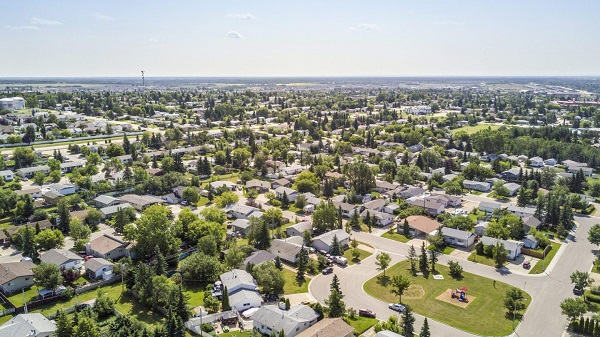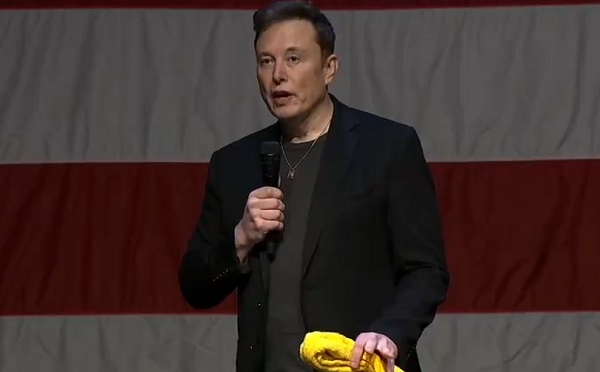Alberta
Central Alberta’s first case of COVID-19 a woman in her 30’s recently returned from travel

From The Province of Alberta
New cases of COVID-19 in Alberta
Alberta’s chief medical officer of health has announced five new cases of novel coronavirus, officially known as COVID-19.
There are now 19 confirmed cases in Alberta, all travel-related. One patient continues to recover in hospital, while all others are in isolation at home.
“Today, the World Health Organization officially declared COVID-19 a pandemic. Alberta has been actively planning for every possible scenario. We know that COVID-19 is going to test our health system and emergency preparedness, but our system is preparing for that test. While the risk of exposure is still low in Alberta, all partners are working together to limit the spread of COVID-19 and protect the health of Albertans.”
“Alberta’s health system is actively preparing for every possible scenario. Having visited an AHS emergency coordination centre and Health Link 811, and having toured stockpiles of personal protective equipment, sanitizers and other supplies, I’ve seen first-hand that our health system is working very hard to protect the health of Albertans.”
One of the confirmed cases involves an Edmonton man in his thirties who recently returned from international travel and started experiencing symptoms a number of days after returning. He received previously scheduled, unrelated treatment at Misericordia Hospital on March 6 and 7, before testing positive for COVID-19 on March 9. He is now self-isolating.
Any staff or patients who were potentially exposed at this location are being directly contacted by public health. There is no risk to any patients or staff at the hospital at this time.
The other confirmed cases involve a man in his twenties and two women in their thirties from the Calgary zone. A female in her thirties from Central zone has also tested positive for COVID-19.
The five newly confirmed cases had returned from visiting a range of countries, including Iran, Egypt, Spain, Mexico and the United States.
Alberta continues widespread testing and aggressive public health measures.
Effective immediately, Alberta will now be asking any travellers who have visited Italy in the last 14 days to self-isolate until two weeks have passed since that visit. These individuals should stay home and away from others, even if they are feeling well. Similar precautions are already in place for travellers returning from Iran and Hubei province, China.
All travellers returning from outside Canada should monitor their health for 14 days after coming home. If they develop symptoms, they should self-isolate immediately and call Health Link 811.
While the risk of catching COVID-19 within the province remains low at this time, this may change in the future.
All Albertans are encouraged to visit alberta.ca/COVID19 for the latest information, guidance and resources.
Alberta
REPORT: Alberta municipalities hit with $37 million carbon tax tab in 2023

Grande Prairie. Getty Images photo
From the Canadian Energy Centre
Federal cash grab driving costs for local governments, driving up property taxes
New data shows the painful economic impact of the federal carbon tax on municipalities.
Municipalities in Alberta paid out more than $37 million in federal carbon taxes in 2023, based on a recent survey commissioned by Alberta Municipal Affairs, with data provided to the Canadian Energy Centre.
About $760,000 of that came from the City of Grande Prairie. In a statement, Mayor Jackie Clayton said “if the carbon tax were removed, City property taxes could be reduced by 0.6 per cent, providing direct financial relief to residents and businesses in Grande Prairie.”
Conducted in October, the survey asked municipal districts, towns and cities in Alberta to disclose the amount of carbon tax paid out for the heating and electrifying of municipal assets and fuel for fleet vehicles.
With these funds, Alberta municipalities could have hired 7,789 high school students at $15 per hour last year with the amount paid to Ottawa.
The cost on municipalities includes:
Lloydminster: $422,248
Calgary: $1,230,300 (estimate)
Medicine Hat: $876,237
Lethbridge: $1,398,000 (estimate)
Grande Prairie: $757,562
Crowsnest Pass: $71,100
Red Deer: $1,495,945
Bonnyville: $19,484
Hinton: $66,829
Several municipalities also noted substantial indirect costs from the carbon tax, including higher rates from vendors that serve the municipality – like gravel truck drivers and road repair providers – passing increased fuel prices onto local governments.
The rising price for materials and goods like traffic lights, steel, lumber and cement, due to higher transportation costs are also hitting the bottom line for local governments.
The City of Grande Prairie paid out $89 million in goods and services in 2023, and the indirect costs of the carbon tax “have had an inflationary impact on those expenses” in addition to the direct costs of the tax.
In her press conference announcing Alberta’s challenge to the federal carbon tax on Oct. 29, 2024, Premier Danielle Smith addressed the pressures the carbon tax places on municipal bottom lines.
“In 2023 alone, the City of Calgary could have hired an additional 112 police officers or firefighters for the amount they sent to Ottawa for the carbon tax,” she said.
In a statement issued on Oct. 7, 2024, Ontario Conservative MP Ryan Williams, shadow minister for international trade, said this issue is nationwide.
“In Belleville, Ontario, the impact of the carbon tax is particularly notable. The city faces an extra $410,000 annually in costs – a burden that directly translates to an increase of 0.37 per cent on residents’ property tax bills.”
There is no rebate yet provided on retail carbon pricing for towns, cities and counties.
In October, the council in Belleville passed a motion asking the federal government to return in full all carbon taxes paid by municipalities in Canada.
The unaltered reproduction of this content is free of charge with attribution to the Canadian Energy Centre.
Alberta
MAiD In Alberta: Province surveying Albertans about assisted suicide policies

Alberta’s government is launching a public engagement to gather input about legislation and policies around assisted suicide, also referred to as medical assistance in dying (MAID).
Medical assistance in dying is a process that allows an eligible person to receive assistance from a medical practitioner in ending their life. To be found eligible, a person must be suffering from a serious and permanent medical condition.
Alberta’s government is reviewing how MAID is regulated to ensure there is a consistent process as well as oversight that protects vulnerable Albertans, specifically those living with disabilities or suffering from mental health challenges. An online survey is now open for Albertans to share their views and experiences with MAID until Dec. 20.
“We recognize that medical assistance in dying is a very complex and often personal issue and is an important, sensitive and emotional matter for patients and their families. It is important to ensure this process has the necessary supports to protect the most vulnerable. I encourage Albertans who have experience with and opinions on MAID to take this survey.”
In addition to the online survey, Alberta’s government will also be engaging directly with academics, medical associations, public bodies, religious organizations, regulatory bodies, advocacy groups and others that have an interest in and/or working relationship to the MAID process, health care, disabilities and mental health care.
Feedback gathered through this process will help inform the Alberta government’s planning and policy decision making, including potential legislative changes regarding MAID in Alberta.
“Our government has been clear that we do not support the provision of medically assisted suicide for vulnerable Albertans facing mental illness as their primary purpose for seeking their own death. Instead, our goal is to build a continuum of care where vulnerable Albertans can live in long-term health and fulfilment. We look forward to the feedback of Albertans as we proceed with this important issue.”
“As MAID is a federally legislated and regulated program that touches the lives of many Albertans, our priority is to ensure we have robust safeguards to protect vulnerable individuals. Albertans’ insights will be essential in developing thoughtful policies on this complex issue.”
The federal Criminal Code sets out the MAID eligibility criteria, procedural safeguards and reporting obligations. The federal government has paused MAID eligibility for individuals with a mental illness as their sole underlying medical condition until March 2027 to ensure the provincial health care systems have processes and supports in place. Alberta’s government does not support expanding MAID eligibility to include those facing depression or mental illness and continues to call on the federal government to end this policy altogether.
Related information
-

 Brownstone Institute18 hours ago
Brownstone Institute18 hours agoThe Most Devastating Report So Far
-

 Economy1 day ago
Economy1 day agoCOP 29 leaders demand over a $1 trillion a year in climate reparations from ‘wealthy’ nations. They don’t deserve a nickel.
-

 Censorship Industrial Complex21 hours ago
Censorship Industrial Complex21 hours agoAnother Mass Grave?
-

 ESG5 hours ago
ESG5 hours agoCan’t afford Rent? Groceries for your kids? Trudeau says suck it up and pay the tax!
-

 Alberta21 hours ago
Alberta21 hours agoMAiD In Alberta: Province surveying Albertans about assisted suicide policies
-

 Energy1 day ago
Energy1 day agoOttawa’s proposed emission cap lacks any solid scientific or economic rationale
-

 Alberta1 day ago
Alberta1 day agoOn gender, Alberta is following the science
-

 International5 hours ago
International5 hours agoElon Musk praises families on X: ‘We should teach fear of childlessness,’ not pregnancy


